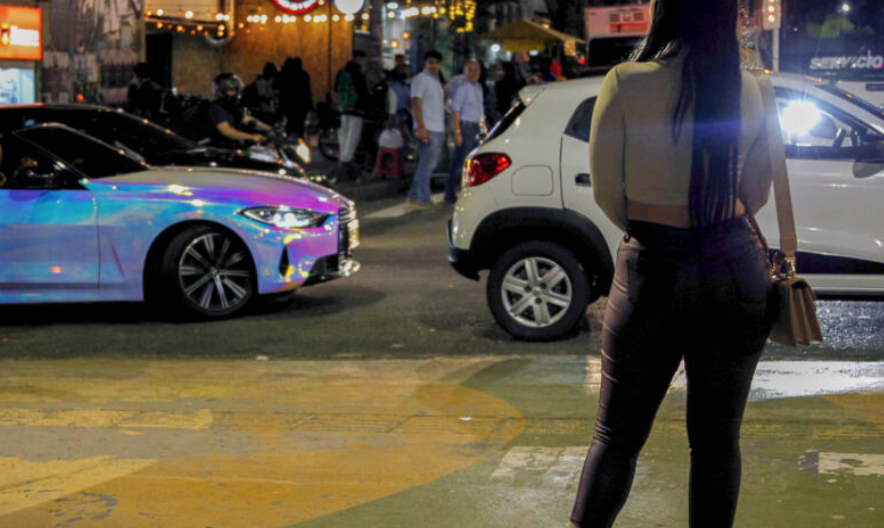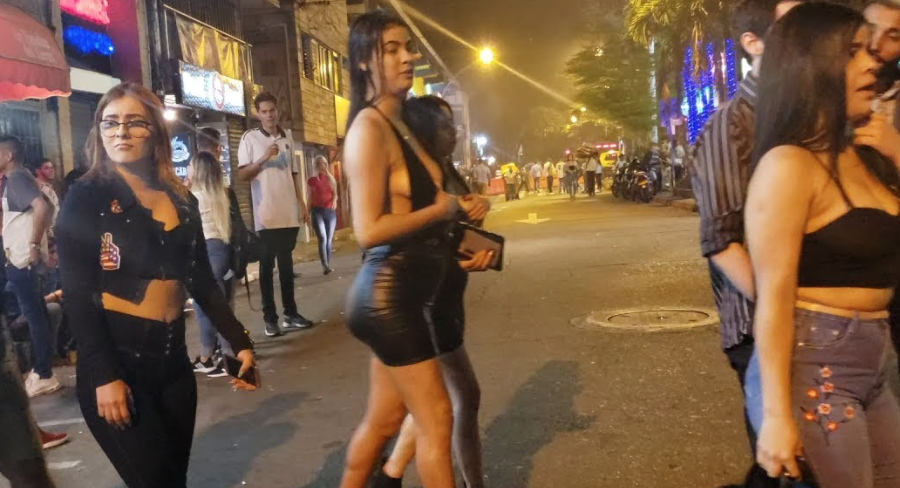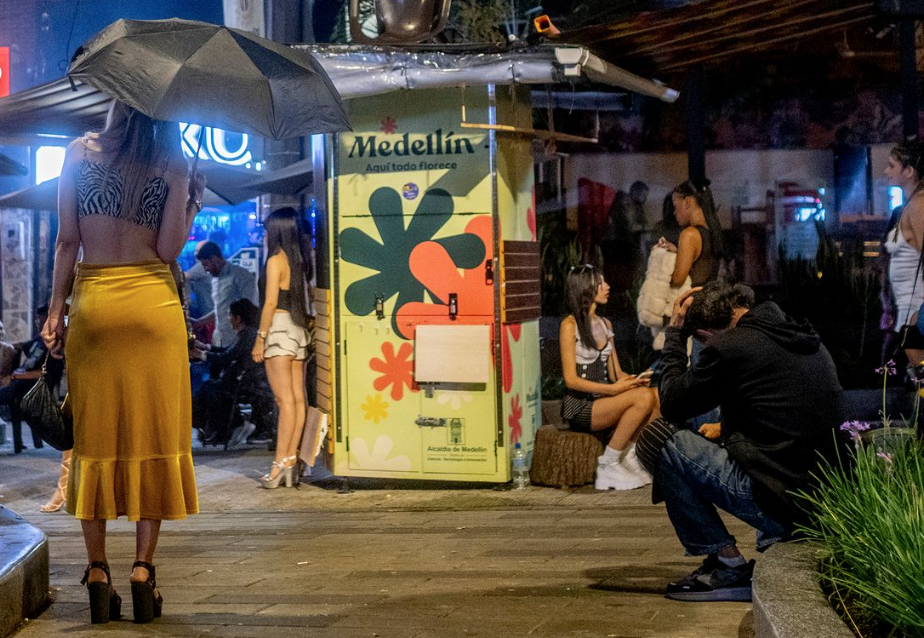Prostitution in Medellín, as in much of Colombia, is a complex and sensitive issue. It is legal and regulated under Colombian law, but there are many associated social, legal, and safety considerations that one should be aware of. Here’s a comprehensive overview:
1. Legal Status
- Legality: Prostitution is legal in Colombia for individuals over the age of 18. This includes the sale of sexual services by individuals as well as the operation of certain regulated businesses such as brothels.
- Regulations: The industry is regulated by local laws that require sex workers to undergo regular health check-ups and ensure that they operate within designated areas. However, enforcement and regulation can be inconsistent.

2. Locations in Medellín
- Zona de Tolerancia (Tolerance Zones): Medellín has designated areas where prostitution is permitted, commonly known as “zonas de tolerancia.” The most well-known of these is in the Centro area, particularly around La Candelaria. This area is heavily policed, but it can still be risky, especially at night.
- Provenza and El Poblado: While these upscale neighborhoods are known for their nightlife, there is also a presence of sex work, though it is often less visible and operates in a more discreet manner, often through online platforms or upscale clubs.
- Street Prostitution: In other parts of Medellín, particularly in less affluent neighborhoods, street prostitution is more common. This form of prostitution is less regulated and can involve greater risks, including violence and exploitation.
3. Risks and Concerns
- Human Trafficking: Despite legal prostitution, human trafficking is a significant problem in Colombia. Some individuals involved in prostitution may be victims of trafficking, coerced into the trade against their will.
- Exploitation: There is a high risk of exploitation within the industry, especially for vulnerable groups such as minors, immigrants, and those in poverty. The line between legal and illegal activity can be blurred, leading to exploitation.
- Health Risks: While regular health check-ups are required by law, not all sex workers may have access to or comply with these regulations. This increases the risk of sexually transmitted infections (STIs) for both sex workers and clients.

4. Social Stigma
- Perception: Despite its legality, prostitution carries a significant social stigma in Medellín, as in the rest of Colombia. Sex workers often face discrimination, marginalization, and limited opportunities outside the industry.
- Community Response: Some local communities and organizations work to support sex workers by offering education, legal assistance, and health services. However, there is also a strong social movement against prostitution, advocating for stricter laws and better enforcement to combat exploitation.
5. Law Enforcement
- Police Oversight: The police monitor designated tolerance zones, but corruption and bribery can affect enforcement. There are frequent police operations targeting illegal prostitution and human trafficking, especially involving minors.
- Legal Consequences: While hiring a sex worker over the age of 18 is legal, soliciting sex from minors is a serious crime with severe penalties, including imprisonment and deportation for foreigners.

6. Tourism and Sex Tourism
- Impact of Tourism: Medellín, like other parts of Colombia, attracts sex tourists, drawn by the city’s reputation and the legal status of prostitution. This has led to increased scrutiny and efforts by authorities to curb illegal activities, especially those involving exploitation or minors.
- Ethical Considerations: Engaging in sex tourism raises significant ethical concerns, particularly regarding the potential for exploitation, trafficking, and the reinforcement of negative stereotypes about Colombia.
7. Foreign Nationals and Legal Risks
- Foreigners: Foreign nationals engaging in prostitution in Medellín must be aware of the legal landscape. While it is legal, there are risks, particularly around issues of trafficking and exploitation. Being involved in illegal activities can lead to arrest, fines, or deportation.
- Deportation and Blacklisting: Foreigners caught engaging in illegal activities, including soliciting sex from minors or being involved in human trafficking, face deportation and could be banned from returning to Colombia.
8. Support Services
- NGOs and Community Groups: Several organizations work to support sex workers in Medellín, offering health services, legal assistance, and educational opportunities. These organizations also work to combat trafficking and exploitation.
- Hotlines and Legal Aid: Victims of trafficking or exploitation can seek help through various hotlines and legal aid services offered by NGOs and the Colombian government.
Key Points:
- Legality: Prostitution is legal and regulated in Colombia for those over 18, but issues like human trafficking and exploitation are prevalent.
- Locations: The main areas of prostitution include the Centro area, particularly La Candelaria, with a presence also in upscale areas like Provenza and El Poblado.
- Risks: There are significant risks, including exploitation, health risks, and legal consequences, particularly for foreigners involved in illegal activities.
- Social Stigma and Enforcement: Prostitution carries social stigma, and while the police monitor tolerance zones, enforcement can be inconsistent.
Understanding the complex landscape of prostitution in Medellín is crucial, especially for those considering engaging with the industry, whether legally or otherwise. The social, legal, and ethical implications are significant, and navigating this space requires caution and awareness of the broader context.
There is some websites that have sexual workers that can go to your hotel, that are more safe for you, if you want the web sites just email me no questions asked, its better to avoid scams and had a good good time. Email: [email protected] .


